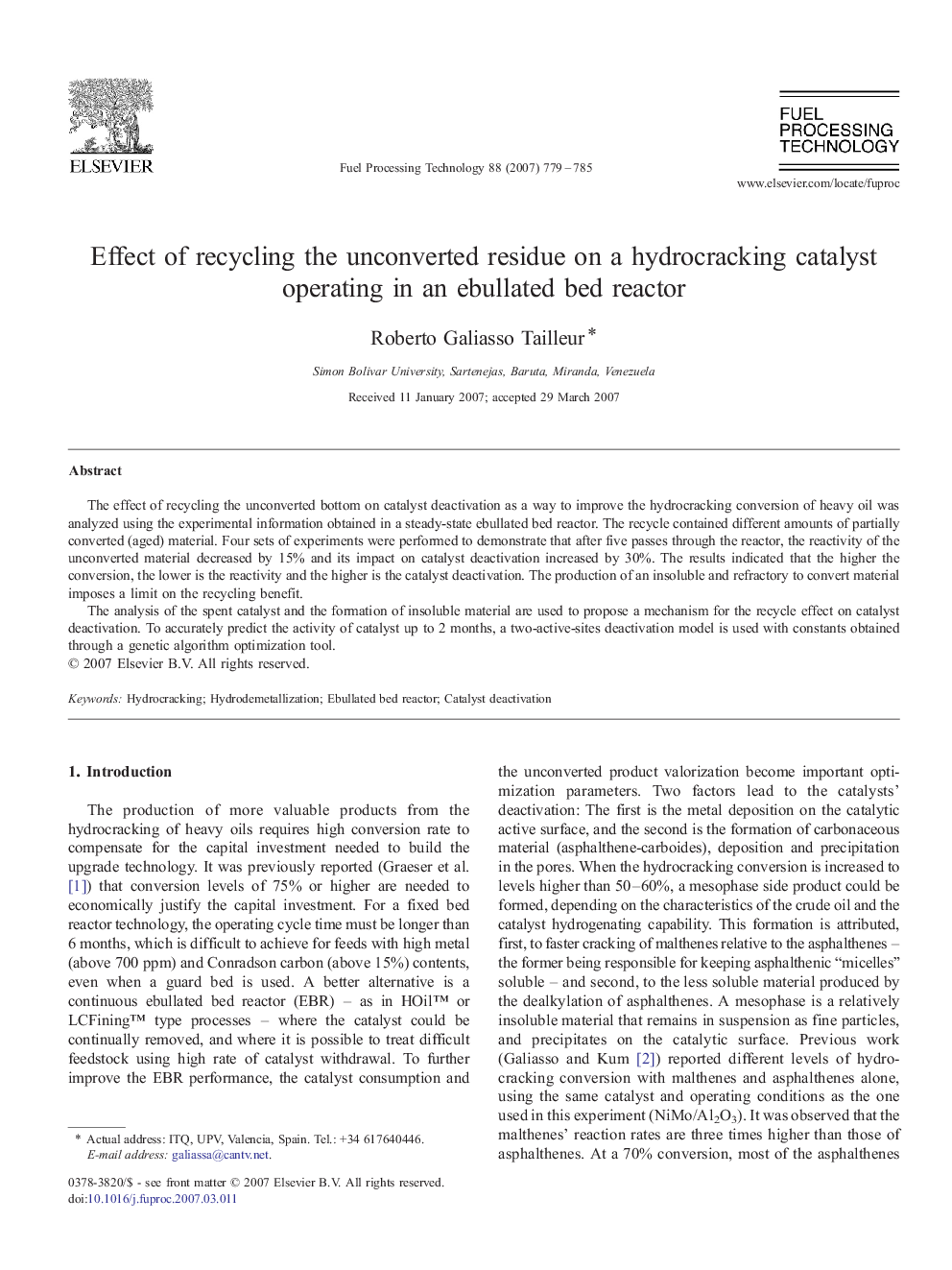| Article ID | Journal | Published Year | Pages | File Type |
|---|---|---|---|---|
| 211540 | Fuel Processing Technology | 2007 | 7 Pages |
The effect of recycling the unconverted bottom on catalyst deactivation as a way to improve the hydrocracking conversion of heavy oil was analyzed using the experimental information obtained in a steady-state ebullated bed reactor. The recycle contained different amounts of partially converted (aged) material. Four sets of experiments were performed to demonstrate that after five passes through the reactor, the reactivity of the unconverted material decreased by 15% and its impact on catalyst deactivation increased by 30%. The results indicated that the higher the conversion, the lower is the reactivity and the higher is the catalyst deactivation. The production of an insoluble and refractory to convert material imposes a limit on the recycling benefit.The analysis of the spent catalyst and the formation of insoluble material are used to propose a mechanism for the recycle effect on catalyst deactivation. To accurately predict the activity of catalyst up to 2 months, a two-active-sites deactivation model is used with constants obtained through a genetic algorithm optimization tool.
